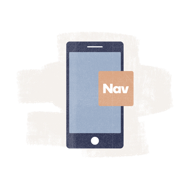Dealing with credit can cause considerable anxiety when you’re a new business owner. While it might be tempting to swear off the entire endeavor and vow not to use credit at all, that would be a mistake. There are plenty of situations — like a mortgage for a new location, or leasing a business vehicle — that require good credit.
Fortunately, some of the necessary steps to build business credit are similar to personal credit. With smart decisions and a bit of knowledge, you can improve your business credit without hurting your cash flow. Here’s how to get started.
Use Credit
While it may seem obvious, you can’t build credit unless you use credit. However, it’s important to ensure your credit activity has a positive impact on your business credit profile, not just your personal profile.
Instead of taking out a personal credit card to handle business activity, apply for a business credit card. Most credit providers will require you to provide a “personal guarantee” for a small business credit card, but as long as you can manage any debt you incur, that shouldn’t be a problem. Make sure the business credit card issuer you choose also reports your account activity to business credit reporting agencies.
Since payment history is the No. 1 factor that impacts business credit scores (positively or negatively), make sure you always make your payments on time. Set up reminders so you don’t accidentally miss payments.
Debt may also impact your business credit scores, though it tends to carry less weight than it does with personal credit scores. Carrying high balances can lead you to have a less optimal score, so aim to keep your balances on your credit cards at 20% to 25% or less of your available credit if possible. Note that it’s important to keep your cards active, so use the card from time to time to prevent the issuer from closing your account due to inactivity. It’s not necessary to carry balances or run up debt to build strong credit, so feel free to pay your balances off each month. Additionally, keep track of your spending so you don’t accidentally get in over your head. Most card issuers offer apps that make it easy to check spending, balances, due dates, and payments.
Verify and Monitor Your Credit Reports
A 2013 survey by The Wall Street Journal and Vistage International found that 25% of business credit reports contained inaccurate or incomplete information that put the businesses in a riskier credit category. Always carefully monitor both your personal and business credit reports, and immediately dispute any information that’s incorrect.
(Nav account holders have a free tool, CreditSweeper, to help them do this.)
Additionally, ensure your business has a profile on record with each of the major business credit reporting agencies such as Experian and Dun & Bradstreet. In particular, you’ll want to request a free D-U-N-S number if your business isn’t already listed with D&B.
Mix It Up
A portion of your credit score is determined by your credit mix, so for business credit a business credit card isn’t enough to build a solid credit rating. One way you can build business credit without taking on debt (and affecting your cash flow) is to make purchases with lenders and vendors who report account history to commercial credit bureaus. You can buy things you need to purchase for your business, such as janitorial or shipping supplies or small equipment, on “terms.” For example, with Net-30 terms, you’ll be required to pay off the account in 30 days. Paying the bill on time, or better yet early, can help boost your credit scores by adding another type of credit reference to your credit reports.
Nav’s free BusinessLauncher tool will provide you with the names of companies that report payment history to commercial credit agencies.
In terms of your personal credit, if you currently have no installment loans on your credit profile, adding one may provide a boost. The bump in your score may be modest, but can help over time.
If you don’t need a mortgage or auto loan, one alternative might be a credit builder loan. Available through some credit unions or community banks, or through Self Lender, a credit builder loan allows you to build credit and a savings account at the same time.
Once you’ve established your credit profile, simply focus on making on-time payments and keeping your revolving balances low or paid in full (but active). Score improvements happen at varying speeds depending on your specific profile, but with responsible usage you might begin seeing gains within a few months.
More answers to pressing questions:
Business Credit Cards for Bad Credit
What Is a Good Business Credit Score?
Can I Build Business Credit Fast?
How to Shop for A Business Loan Without Hurting Your Credit Scores
This article was originally written on September 12, 2016 and updated on May 4, 2017.


Have at it! We'd love to hear from you and encourage a lively discussion among our users. Please help us keep our site clean and protect yourself. Refrain from posting overtly promotional content, and avoid disclosing personal information such as bank account or phone numbers.
Reviews Disclosure: The responses below are not provided or commissioned by the credit card, financing and service companies that appear on this site. Responses have not been reviewed, approved or otherwise endorsed by the credit card, financing and service companies and it is not their responsibility to ensure all posts and/or questions are answered.